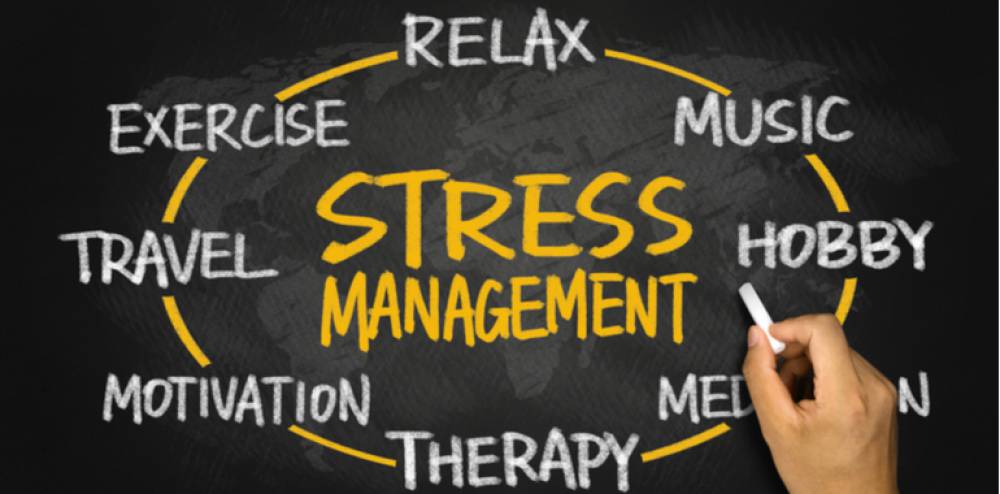In today’s fast-paced world, stress and a busy lifestyle seem to go hand in hand. Many people juggle work, family responsibilities, and personal commitments, often feeling overwhelmed and exhausted. However, managing stress is crucial for maintaining good physical and mental health. According to Angela Debo, DO, a family medicine doctor at Bayhealth, prolonged stress can lead to serious health concerns such as high blood pressure, diabetes, anxiety, and depression.
To ensure a healthy and productive life, it is essential to adopt effective stress management techniques. Here are some expert-backed tips to help you reduce stress and find balance in your busy schedule.

The Importance of Managing Stress
Stress, when left unchecked, can negatively impact your overall well-being. It can lead to burnout, weakened immunity, sleep disorders, and emotional instability. Learning how to manage stress efficiently can improve your quality of life, boost productivity, and enhance your overall happiness.
1. Prioritize Quality Sleep
Why Sleep Matters
Sleep is the foundation of good mental and physical health. Lack of sleep can impair cognitive functions, increase irritability, and weaken the immune system. When you don’t get enough rest, stress levels can skyrocket, making it harder to focus and stay productive.
Tips for Better Sleep
- Stick to a consistent sleep schedule, even on weekends.
- Avoid screens (phones, tablets, and laptops) at least an hour before bedtime.
- Create a relaxing nighttime routine, such as reading a book or practicing deep breathing.
- If you struggle with sleep regularly, consult your primary care physician for guidance.
2. Incorporate Physical Activity into Your Routine
Exercise as a Stress Reliever
Regular physical activity is a proven stress-buster. It boosts endorphins, improves mood, and increases energy levels, helping you tackle your daily responsibilities with a fresh perspective.
Easy Ways to Stay Active
- Take a short walk during lunch breaks.
- Stretch for a few minutes in between work tasks.
- Engage in activities you enjoy, such as dancing, cycling, or yoga.
- Aim for at least 30 minutes of moderate exercise most days of the week.
3. Stay Organized with Notes and Checklists
Reduce Mental Clutter
A cluttered mind leads to stress and forgetfulness. Writing things down can help you stay on top of tasks and reduce unnecessary pressure.
Productivity Tips
- Use a planner or a digital app to track important tasks and deadlines.
- Create daily to-do lists and check off completed tasks for a sense of accomplishment.
- Break large projects into smaller, manageable steps.
4. Let Go of Perfectionism and Delegate Tasks
The Downside of Perfectionism
Trying to do everything perfectly can be overwhelming and counterproductive. Sometimes, completing a task is more important than doing it flawlessly.
Practical Ways to Delegate
- Identify tasks that can be outsourced or shared with others.
- Ask family members for help with household chores.
- If possible, hire help for small tasks like lawn mowing or cleaning.
- Focus on high-priority tasks and accept that some things don’t need to be perfect.
5. Make Time for Fun and Relaxation
Why Fun is Essential
All work and no play can lead to stress buildup. Taking time for enjoyable activities helps you recharge mentally and emotionally.
Tips for Incorporating Fun
- Schedule quality time with family and friends.
- Engage in hobbies such as painting, writing, or playing music.
- Take short breaks during work to relax and unwind.
- Practice mindfulness and be fully present in your leisure activities.
Additional Stress-Relief Strategies
Practice Deep Breathing and Meditation
Taking a few minutes to focus on deep breathing or mindfulness meditation can lower stress levels and improve concentration.
Maintain a Healthy Diet
Eating nutritious foods supports your overall well-being. Avoid excessive caffeine and processed foods, which can contribute to stress.
Stay Hydrated
Dehydration can lead to fatigue and increased stress. Make sure you drink enough water throughout the day.
Connect with Supportive People
Spending time with loved ones or talking to a friend can provide emotional support and reduce feelings of stress and isolation.
FAQs
1. Why is stress management important?
Stress management is essential for maintaining physical and mental health. Chronic stress can lead to serious health issues like high blood pressure, heart disease, and anxiety.
2. What are some quick stress relief techniques?
Some quick stress relief techniques include deep breathing, stretching, listening to calming music, and taking short walks.
3. How can I improve my sleep for better stress management?
To improve sleep, establish a bedtime routine, avoid screens before bed, and create a comfortable sleep environment.
4. What role does exercise play in stress management?
Exercise releases endorphins, which help reduce stress, improve mood, and increase energy levels.
5. How can I stay productive without feeling overwhelmed?
Use planners or digital apps to stay organized, prioritize tasks, and delegate work when possible to avoid burnout.




